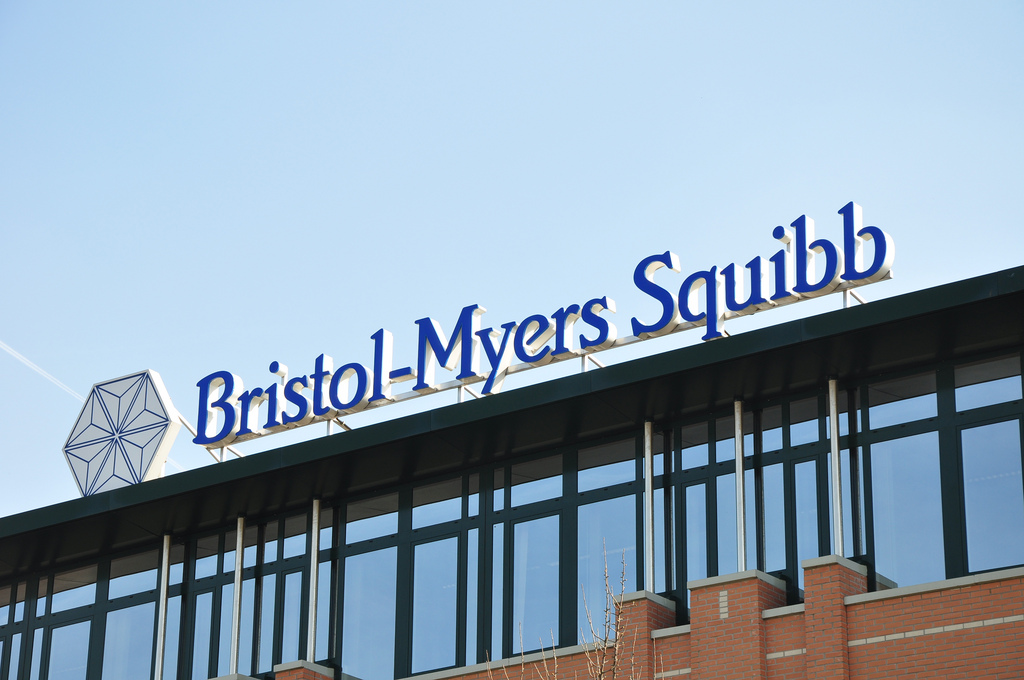
(Credit: A4)
Opdivo (nivolumab) in combination with Yervoy (ipilimumab) and Opdivo monotherapy significantly improved overall survival versus Yervoy alone in patients with previously untreated advanced melanoma.
Bristol-Myers Squibb Company today announced the first overall survival (OS) data from the Phase 3 CheckMate -067 clinical trial. With a minimum follow-up of 28 months, the median OS had not yet been reached in either of the two Opdivo treatment groups and was 20 months for the Yervoy monotherapy group (95% CI: 17.1-24.6).
Opdivo in combination with Yervoy and as a monotherapy reduced the risk of death 45% [hazard ratio (HR) 0.55; 95% CI: 0.42-0.72; P<0.0001] and 37% (HR 0.63; 95% CI: 0.48-0.81; P<0.0001), respectively, compared with Yervoy alone. The two-year OS rates were 64% for the Opdivo plus Yervoy combination, 59% for Opdivo alone and 45% for Yervoy alone.
Results will be presented today in the press program and an oral presentation during the Update, Novel Indication, and New Immuno-oncology Clinical Trials session from 3:35 to 3:50 p.m. ET (Late-Breaking Abstract CT075) at the American Association for Cancer Research Meeting 2017 in Washington, D.C.
The updated safety data reported in this new analysis were consistent with previously reported experience, with no cumulative toxicity noted or new safety signals identified. Grade 3/4 treatment-related adverse events occurred in 58%, 21%, and 28% of the combination, Opdivo alone and Yervoy alone groups, respectively.
“It is encouraging to see such positive data from this trial, which further supports the scientific rationale to combine Immuno-Oncology agents as a potential treatment option for this aggressive form of melanoma. These CheckMate -067 survival data bolster our understanding of potential ways to combat untreated advanced melanoma and ultimately advance cancer care for patients,” said James Larkin, Ph.D., FRCP, Consultant Medical Oncologist, Department of Medical Oncology, The Royal Marsden.
The proportion of patients experiencing complete responses (CR) compared to a previous 18 month follow-up analysis increased in the combination group to 17.2% from 12.1%, in the Opdivo alone group to 14.9% from 9.8%, and in the Yervoy alone group to 4.4% from 2.2%. Progression-free survival (PFS) and objective response rates (ORR) from updated analyses were both consistent with previous reports.
The risk of disease progression was significantly reduced for both the combination and Opdivo monotherapy groups, 58% (HR 0.42; 95% CI: 0.34-0.51) and 46% (HR 0.54; 95% CI: 0.45-0.66), respectively, compared to Yervoy alone. The ORR for the two Opdivo groups, in combination and alone, and the Yervoy alone group was, respectively, 58.9% (95% CI: 53.3-64.4), 44.65% (95% CI: 39.1-50.3) and 19.0% (95% CI: 14.9-23.8).
“This first disclosure of overall survival data from CheckMate -067 helps to advance our understanding of the potential longer term benefits of Opdivo in combination with Yervoy in advanced melanoma, a cancer that historically has been difficult-to-treat,” said Vicki Goodman, M.D., development lead, Melanoma and Genitourinary Cancers, Bristol-Myers Squibb.
(Source: Business Wire)
Filed Under: Drug Discovery



